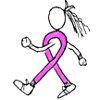
Surviving breast cancer is not simply about treating illness. It is primarily about creating wellness.
I have come to this deeply held belief based on extensive surveys and interviews with more than sixteen thousand cancer survivors. Along with a wonderful team of associates at the Cancer Recovery Group, we studied what went right with cancer patients — what led to survival.
Today, I can emphatically state: orthodox medical treatment alone does not maximize one’s opportunity for breast cancer survival.
Having said that, I need to make clear that all I am suggesting is to be considered in addition to, not in place of, conventional medical care. That’s what the term integrated cancer care means.
Get The Latest By Email
Integrated Cancer Care: Using the Best of All Available Choices
Evidence abounds that when a patient integrates complementary and even alternative approaches into a conventional biomedical cancer treatment program, it is very likely to result in better outcomes, reduced side effects, a greater sense of control, and much improved quality of life.
While the Cancer Recovery Group and our affiliate, Breast Cancer Charities of America, certainly support each individual’s choices and decisions in treatment — be they strictly conventional, complementary, or alternative — we have become much more assertive in urging the integrated approach. Our work takes three forms:
- Educate. Help patients understand their diagnosis of breast cancer, the spectrum of treatment options, and what they can do to help themselves.
- Empower. Guide patients to actually implement these strategies in their breast cancer recovery journey, creating a new way of life.
- Encourage. Support by offering inspiration and hope that no matter how difficult, patients can survive and even thrive through the breast cancer experience.
Those are big promises. The integrated breast cancer care strategy makes good on those promises.
Turning The Crisis of Breast Cancer Into A Unique Opportunity
I want us to examine and explore the implementation of this holistic strategy, to help you apply these ideas in simple, understandable steps. These ideas offer you a plan to get well and stay well for the remainder of your life, however long or short that time may be.
The end result is a unique body-mind-spirit approach to health and healing. These strategies improve the ability to deal rationally with a breast cancer diagnosis, make intelligent and informed choices in treatment, and mobilize all the resources available to you in the healing process.
In the end, the integrated cancer care strategy helps turn the crisis of breast cancer into a unique opportunity to live far more happily and healthfully than ever before.
From Genetic Mutations to Lifestyle Adjustments
In the current medical culture, there is a pervasive belief that genetics explains cancer and is the basis of a cancer cure. Yes, cancer does involve genes and genetic mutations. But you and I possess the ability to switch on and off the expression of those genes. And we can accomplish this naturally.
Even the preeminent leaders in epigenetics, the study of processes that change cells but do not alter the actual DNA gene sequence, conclude and agree that lifestyle has a massive influence on disease prevention and treatment.
In fact, lifestyle choices can reverse or control a variety of genetic predispositions. Some basic examples: If you smoke cigarettes, the chances are greater that your cells will be damaged and your lungs much more susceptible to cancer. Eat with with nutritional intelligence, and chances are your cellular mutations will successfully self-resolve. Daily exercise absolutely changes your biochemistry, and this influences cellular biology. So do our emotional responses.
The point is, lifestyle choices readily trigger epigenetic mechanisms that can assist you in resolving breast cancer and preventing its recurrence.
Your Current State of Health
 Let’s be clear. Our starting point is not genes gone haywire; it is your state of health. So how is it? How healthy are you?
Let’s be clear. Our starting point is not genes gone haywire; it is your state of health. So how is it? How healthy are you?
One way to assess your state of holistic well-being is to ask yourself a series of questions, holding yourself accountable for honest answers.
Physical Well-Being:
Do I truly practice high nutritional intelligence?
Do I exercise each day?
Do I seek health guidance from competent health guides?
Attitudinal Well-Being:
Do I believe my life is filled with possibilities or obstacles?
Do I see my happiness as a choice or as a condition dependent on circumstances?
Do I understand my beliefs and perceptions are the source of both my peace and my pain?
Emotional Well-Being:
Do I possess an awareness of my dominant emotional style?
Do I feel free to express my feelings, or do I keep a stiff upper lip?
Do I understand how to choose and manage my emotions?
Social Well-Being:
Do I feel a close connection with others?
Do I both give and receive attention?
Do I have someone with whom I can share everything?
Spiritual Well-Being:
Do I have a sense there is more, a divine part to life?
Do I have an intimate connection with the divine?
Do I know what to do to establish and strengthen that connection?
While certainly not exhaustive, this picture of one’s state of health is central to an understanding of getting well again. The result of such an understanding is the ability to mobilize the whole person — body, mind, and spirit — not only to recover from breast cancer but also to achieve your best life now.
Creating Health and Healing During and After Cancer
Medical treatments certainly have a time and a place in many breast cancer recovery programs. I have come to understand that they are not to occupy the dominant place. Instead, after more than twenty-five years of study and experience, I now believe these treatments are temporary steps to allow the body the opportunity to alleviate the burden of breast cancer. Once the burden is lessened, the whole person can then go forward in the creation of health and healing.
This is viewed as a radical position, I know. I also believe it is totally accurate and completely trustworthy, the rational alternative to the sole use of increasingly toxic, invasive, and experimental cancer treatments.
Reprinted with permission of the publisher,
Conari Press, an imprint of Red Wheel/Weiser, LLC.
www.redwheelweiser.com.
©2011 by Greg Anderson. All rights reserved.
This article was adapted with permission from the book:
Breast Cancer: 50 Essential Things You Can Do
by Greg Anderson.
 Cancer-survivor Greg Anderson, offers critical information about the major issues patients face following a breast cancer diagnosis, and shows how to implement a comprehensive recovery plan that maximizes opportunity for healing and recovery. This is a fully integrative approach--one that questions Western medicine's tendency to overtreat and proposes a combination of nutrition, exercise, mind/body approaches, and social support along with conventional medical care.
Cancer-survivor Greg Anderson, offers critical information about the major issues patients face following a breast cancer diagnosis, and shows how to implement a comprehensive recovery plan that maximizes opportunity for healing and recovery. This is a fully integrative approach--one that questions Western medicine's tendency to overtreat and proposes a combination of nutrition, exercise, mind/body approaches, and social support along with conventional medical care.
Click here for more info and/or to order this book on Amazon.
About the Author
 Greg Anderson is a recognized pioneer in the field of integrated cancer care, and founder and CEO of Cancer Recovery Foundation International, a global affiliation of national charities now operating in the US, Canada, the UK, France, Germany, and Australia. Visit him at: www.CancerRecovery.org
Greg Anderson is a recognized pioneer in the field of integrated cancer care, and founder and CEO of Cancer Recovery Foundation International, a global affiliation of national charities now operating in the US, Canada, the UK, France, Germany, and Australia. Visit him at: www.CancerRecovery.org










